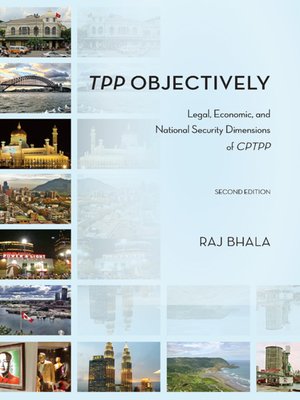
Sign up to save your library
With an OverDrive account, you can save your favorite libraries for at-a-glance information about availability. Find out more about OverDrive accounts.
Find this title in Libby, the library reading app by OverDrive.



Search for a digital library with this title
Title found at these libraries:
| Library Name | Distance |
|---|---|
| Loading... |
In a world in which the debate about TPP, and international trade generally, is highly polarized, TPP Objectively is an essential resource because it is a balanced presentation. The author, renowned for his International Trade Law and Understanding Islamic Law textbooks, spent several years studying all sides of the controversial issues, and conducted first-hand research in 11 of the 12 TPP countries, and several non-TPP countries (including India, Indonesia, and Korea). The text is thoroughly referenced, with hundreds of citations to different sources from around the world to help readers get a clear, well-rounded understanding of TPP. TPP Objectively is not only for specialty audiences, such as scholars, teachers, and students in international trade, international economics, and international relations, but also for general readers interested in international law and policy, including legislators and their staffs and other decision-makers engaged in international trade agreements.
The second edition, subtitled "Legal, Economic, and National Security Dimensions of CPTPP," is fully up to date through the end of 2019 and its expanded discussion covers all new developments since the controversial January 2017 decision by the United States to withdraw from TPP, including:
- The entry into force of CPTPP;
- The similarities and differences between TPP and CPTPP;
- CPTPP provisions and how they originated and were negotiated;
- CPTPP rules on State Owned Enterprises (SOE), and how those disciplines would affect China; and
- CPTPP rules about the empowerment of women through trade.







